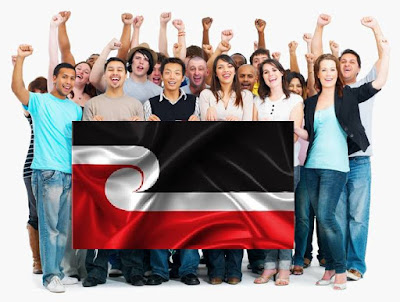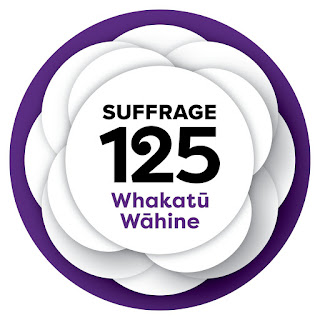Sorry sorry sorry
Good ol' apologies. They are a good start, but that's all they are until measured with what follows.
When me and my bro used to have fisty-cuffs, Dad would pinch our ears and demand we apologise to each other, shake hands or hug, to make up. When I use to be mean to my sister and make her cry, Dad would do his "Do as I tell you or else..." face, and demand I say sorry and be nice to my sister, and be friends.
With my brother, we'd spit "SORRY!!" at each other, do a bone crushing handshake, or a hard thump thump hug. Dad requirements tickbox filled, we'd eyeball each other, waiting for the next time we could have a go at each other without Mum or Dad finding out.
With my sister, I'd patronisingly say "sorry" and give her eyes of death "I'll get you later for telling on me", so she would run away and not want to be friends and play together, like Dad said we had to.
Apologies are diverse things...
They do not atone, rectify, or heal wounds and wrongs, inherently on their own. They simply acknowledge what has happened (even if it's just being miffed that you got caught) and the space is then opened for atonement, rectification and healing. It's what happens after the apology that is of importance.
Too often, "Sorry" is benign, obligatory, or a way to weasel out of the responsibilities that hurting or wounding brings.
If we say "sorry" and it ends there, with no rectifying, reparation or just genuine-ness, sorry becomes nothing more than a guilt-dump.
Sometimes people say sorry to get out of sticky situations (like I so often did with my siblings) and will just do the harmful or offensive thing again. This is not a "sorry I hurt or offended you and I think my actions are wrong or unjust", it's a "I'm sorry I got busted and I hope I don't get busted next time".
This is what I call the "heat off" sorry. This can also be an abuser tactic.
"I'm sorry I hit you babe". Or "We're sorry we stole your children". People, or States, can say sorry, and still be emotionally and psychologically abusive, or still engage in and perpetuate institutional racism, structural colonisation and the tenets of white supremacy.
This is what I call the "cop out" sorry.
When people like Melissa Lee apologise, or when States apologise for past or present grievances and injustices, we need to measure the sincerity of their apology with their actions (or inactions) after the apology.
Are their sentiments genuine, are they trying heal wounds created, seeking to better understand why and how their actions caused pain or offense? Or are they simply trying to take the heat off and get out of an embarrassing situation? A smoke-screen to other things like the initial offense, they will just do again in a sneakier fashion.
By Dumpling
When me and my bro used to have fisty-cuffs, Dad would pinch our ears and demand we apologise to each other, shake hands or hug, to make up. When I use to be mean to my sister and make her cry, Dad would do his "Do as I tell you or else..." face, and demand I say sorry and be nice to my sister, and be friends.
With my brother, we'd spit "SORRY!!" at each other, do a bone crushing handshake, or a hard thump thump hug. Dad requirements tickbox filled, we'd eyeball each other, waiting for the next time we could have a go at each other without Mum or Dad finding out.
With my sister, I'd patronisingly say "sorry" and give her eyes of death "I'll get you later for telling on me", so she would run away and not want to be friends and play together, like Dad said we had to.
Apologies are diverse things...
They do not atone, rectify, or heal wounds and wrongs, inherently on their own. They simply acknowledge what has happened (even if it's just being miffed that you got caught) and the space is then opened for atonement, rectification and healing. It's what happens after the apology that is of importance.
Too often, "Sorry" is benign, obligatory, or a way to weasel out of the responsibilities that hurting or wounding brings.
If we say "sorry" and it ends there, with no rectifying, reparation or just genuine-ness, sorry becomes nothing more than a guilt-dump.
Sometimes people say sorry to get out of sticky situations (like I so often did with my siblings) and will just do the harmful or offensive thing again. This is not a "sorry I hurt or offended you and I think my actions are wrong or unjust", it's a "I'm sorry I got busted and I hope I don't get busted next time".
This is what I call the "heat off" sorry. This can also be an abuser tactic.
"I'm sorry I hit you babe". Or "We're sorry we stole your children". People, or States, can say sorry, and still be emotionally and psychologically abusive, or still engage in and perpetuate institutional racism, structural colonisation and the tenets of white supremacy.
This is what I call the "cop out" sorry.
When people like Melissa Lee apologise, or when States apologise for past or present grievances and injustices, we need to measure the sincerity of their apology with their actions (or inactions) after the apology.
Are their sentiments genuine, are they trying heal wounds created, seeking to better understand why and how their actions caused pain or offense? Or are they simply trying to take the heat off and get out of an embarrassing situation? A smoke-screen to other things like the initial offense, they will just do again in a sneakier fashion.
By Dumpling


Comments
Post a Comment